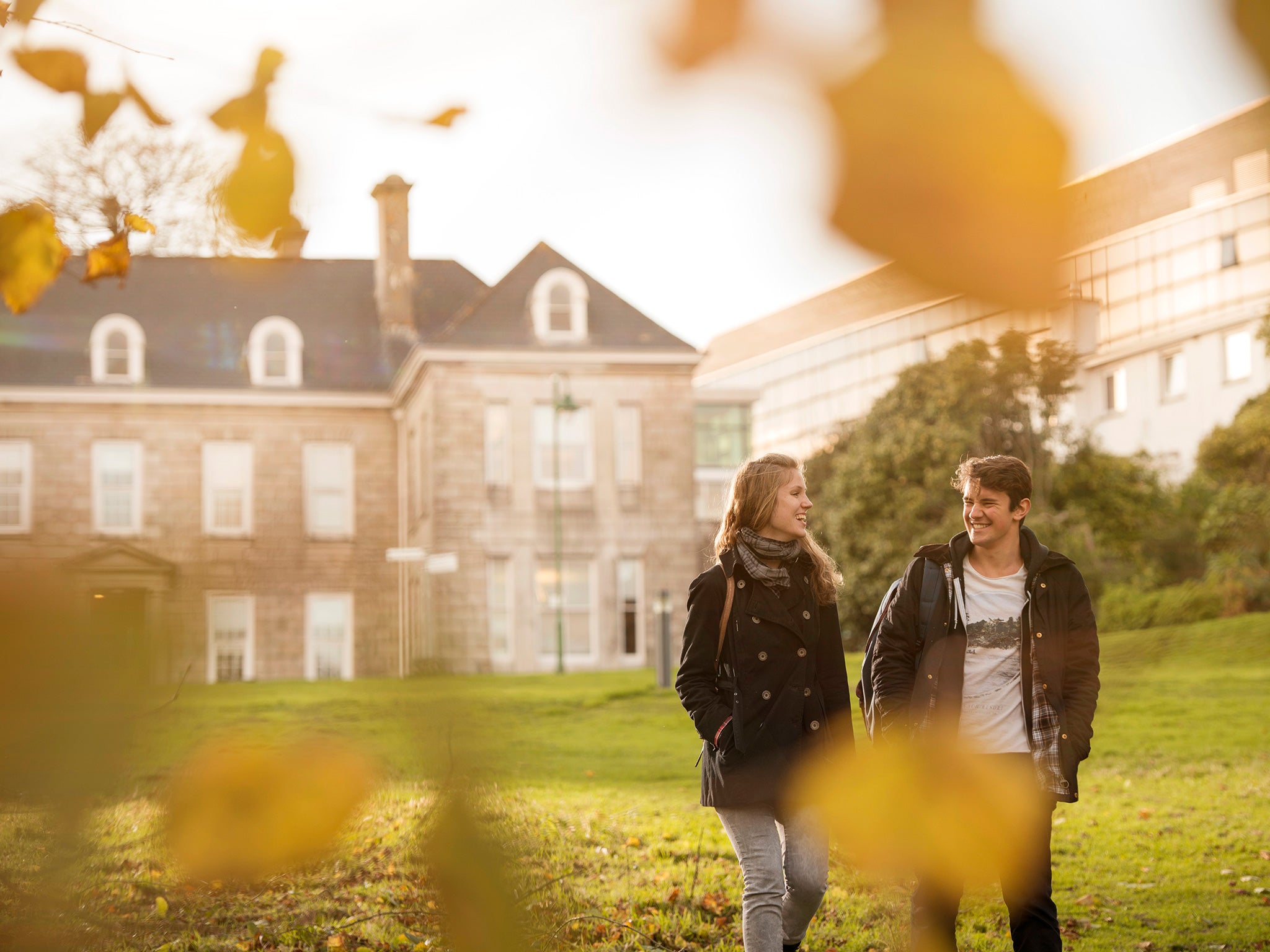The advantages a smaller university has for students compared to a city one
A community feel, smaller student body and more attention from lecturers are just some of the things a university in the city doesn't offer

You may not have noticed, but there’s been a recent surge in support for a new type of university experience. In many ways, it can be seen as a product of the new shift in attitudes towards higher education that came with the rise in tuition fees: less as a carefree, decadent rite of passage, and more as an expensive career advancement - with some fun times thrown into the mix.
As a result, support for small campuses, far away from large city centres, has been growing in recent years. Speaking as a second-year undergraduate at one such campus (University of Exeter, Penryn Campus), and having visited many friends at universities with five times as many students, I completely understand why.
Although there are many advantages to attending a Russell Group university, sharing facilities with Falmouth University (recently voted the UK’s number one arts university), and having a beach within a five-minute drive, there’s a much bigger focus on what the campus embodies as a wider lifestyle.
At first, It may sound strange to opt for a student experience where there are only around 4,000 students on the campus. Indeed, many students at first are hesitant to move away from the hustle and bustle of an urban environment and move towards the serenity of a seaside town.
English student Jack Guy described how it wasn’t initially what he had applied for but, having visited the campus for an open day, he realised it suited him better. He said: “I quite like that it's not a very big campus; I know pretty much all my course mates, and I remember when I went to student services they mentioned how they're able to help people more personally than, perhaps, some larger universities can.”
Elliot Bailey, a student in history, agreed and added: “There is an intangible sort of community feel on such a small campus. Pretty much everywhere you go, on campus or in town, you'll see several people you know which can either be a blessing or a curse, admittedly, as this can include lecturers.”
It seems that, at larger universities, the concept of being ‘lost in a crowd’ applies more than ever. Outside of Oxbridge tutorials, university seminars often have around 15 people in the same room as one teacher. At smaller campuses - due to better staff to student ratios - this can reach as low as five students per staff, allowing for a more interactive educational experience.
Though it may seem a smaller student population would mean it would be harder to find lasting friendships, it’s often the case there will be more shared experiences between the students, meaning stronger bonds.
Also, due to a large variety of courses on offer, it’s harder to only have friends studying the same degree as you. Students will inevitably find themselves speaking to people who have completely different skill sets and interests, making for a varied university experience that helps shape you as an individual.
And it’s good for the surrounding area too. Although Cornwall is known as a top holiday destination, it was recently discovered to be the poorest region in the UK, so the university campus bringing in £491 million into the local economy between 2002 and 2012 has been warmly welcomed.
There are, of course, drawbacks to attending a small university in the countryside. While there is a healthy student nightlife, it is mostly based on karaoke bars and cheesy pop music, as opposed to the sprawling clubs of Manchester or London. Good times can definitely still be had, but it’s fair to say not everyone will be suited to a quieter lifestyle.
However, in the modern world where it’s often easy get caught up in the hectic nature of a city lifestyle, maybe a calmer university experience is what every undergraduate needs - if only to delay the inevitable world of work that awaits.
Twitter: @D3KN0W
Join our commenting forum
Join thought-provoking conversations, follow other Independent readers and see their replies
Comments
Bookmark popover
Removed from bookmarks